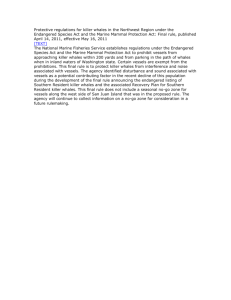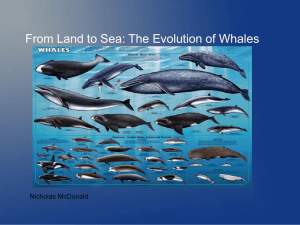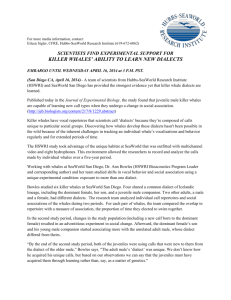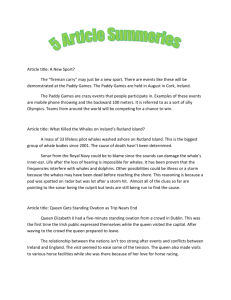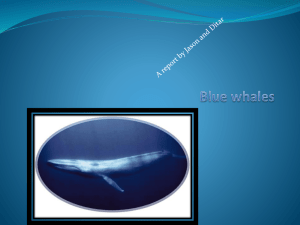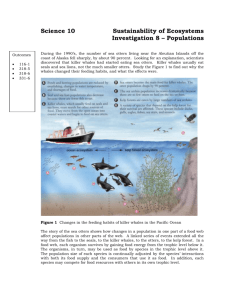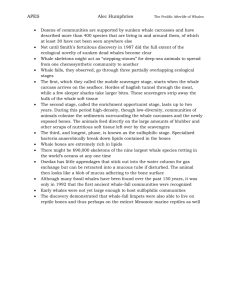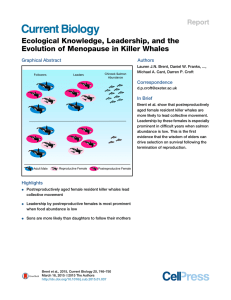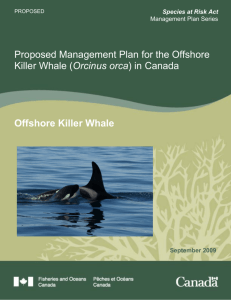older is better for whale moms study
advertisement
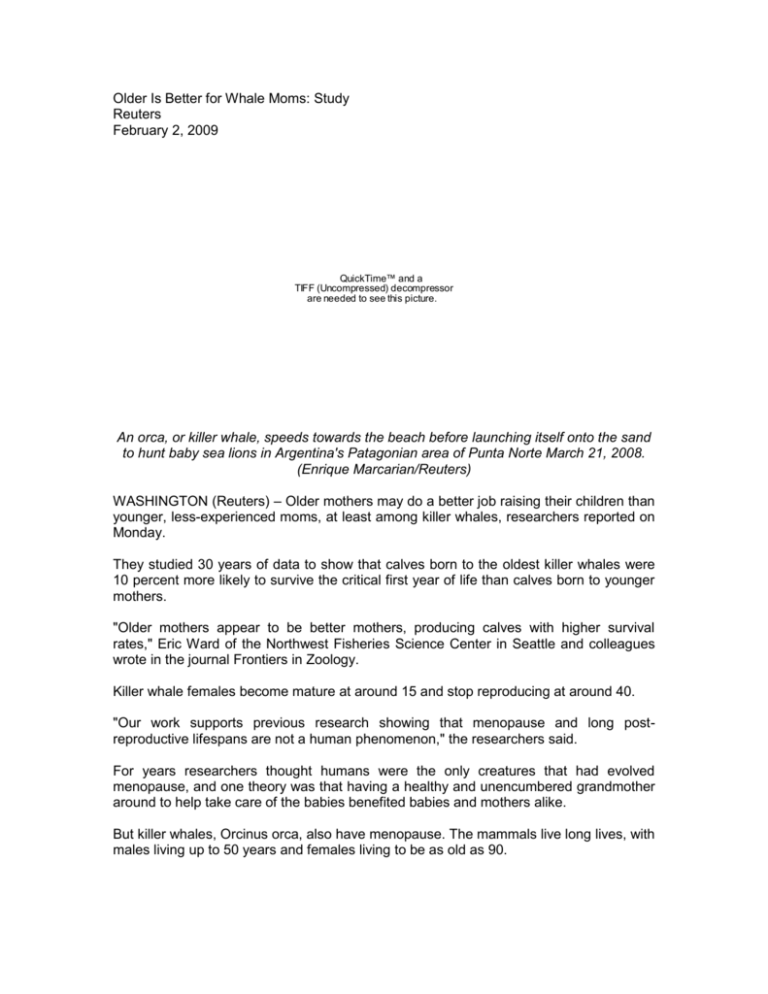
Older Is Better for Whale Moms: Study Reuters February 2, 2009 QuickTime™ and a TIFF (Uncompressed) decompressor are needed to see this picture. An orca, or killer whale, speeds towards the beach before launching itself onto the sand to hunt baby sea lions in Argentina's Patagonian area of Punta Norte March 21, 2008. (Enrique Marcarian/Reuters) WASHINGTON (Reuters) – Older mothers may do a better job raising their children than younger, less-experienced moms, at least among killer whales, researchers reported on Monday. They studied 30 years of data to show that calves born to the oldest killer whales were 10 percent more likely to survive the critical first year of life than calves born to younger mothers. "Older mothers appear to be better mothers, producing calves with higher survival rates," Eric Ward of the Northwest Fisheries Science Center in Seattle and colleagues wrote in the journal Frontiers in Zoology. Killer whale females become mature at around 15 and stop reproducing at around 40. "Our work supports previous research showing that menopause and long postreproductive lifespans are not a human phenomenon," the researchers said. For years researchers thought humans were the only creatures that had evolved menopause, and one theory was that having a healthy and unencumbered grandmother around to help take care of the babies benefited babies and mothers alike. But killer whales, Orcinus orca, also have menopause. The mammals live long lives, with males living up to 50 years and females living to be as old as 90. Ward's team used 30 years of data on the charismatic black-and-white carnivores to see which mothers did the best at raising calves. "Older females may be more successful in raising young because of maternal experience, or they may allocate more effort to their offspring relative to younger females," the researchers wrote in their study, available on the Internet at http://www.frontiersinzoology.com/. (Reporting by Maggie Fox, Editing by Sandra Maler) In Killer Whales and Humans, Older Moms May Be Best By Andrea Thompson, LiveScience.com February 6, 2009 Killer whales that are nearing menopause make the best moms, a new study finds. This could be the case among humans, though it's less clear. Killer whales (Orcinus orca) are extremely long-lived marine mammals. While males can live as many as 50 years, female killer whales can live much longer - scientists have even found one female that is thought to be more than 90. Females can have their first calves (as baby killer whales are called) as early as age 10, and can continue having offspring until their early 40s, when menopause can start to kick in. Just as in humans, menopause ends a female killer whale's ability to reproduce. Just why humans, whales and other mammals have evolved this trait is unknown. Some scientists think menopause could simply be due to physiological deterioration that comes with age, while others think it could increase the fitness of older females. Eric Ward of the Northwest Fisheries Science Center in Seattle and a team of researchers studied killer whales living off the coasts of Washington and British Columbia, Canada, to see what benefits menopause might have on females, including on their calf-rearing abilities. Older is better The researchers used 30 years of data collected by the Center for Whale Research and Canada's Department of Fisheries and Oceans that includes information on all of the whales living in the area. "During annual photographic surveys, nearly every individual in the population has been recorded. Each animal has unique pigmentation, scars, and fin shapes, allowing us to track the survival and reproductive performance of each female over time," Ward said. The researchers didn't find any direct benefit of menopause for mothers (or grandmothers), but they did find an impact on the survival of calves: Calves born to older mothers had a 10 percent higher survival rate than other calves. 2 "We found that the oldest mothers may also be the best mothers," Ward said. "Older females may be more successful in raising young because of maternal experience, or they may allocate more effort to their offspring relative to younger females," which are splitting their attention between their calves and mating. The results of the research, which was partially funded by the National Research Council, were detailed in the Feb. 3 issue of the online journal Frontiers in Zoology. The researchers also found that 3-year-old killer whales may benefit from helpful grandma whales; studies of humans have also shown a positive grandmother effect on newly-weaned infants, the researchers said in their study. Biology and sociology Human females of course also become infertile once they reach menopause, but their ability to bring a pregnancy to term and have a healthy baby can be affected long before that, as problems in the reproductive system can begin to accumulate after about age 40. "Biologically you've got a pretty sharp ceiling," said retired sociologist John Mirowski, formerly of the University of Texas, Austin. Mirowski was not involved in the new whale study. But a mom's age isn't the only factor that affects the health and development of her children. "There's a tradeoff between biology and sociology," Mirowski told LiveScience. And for child-rearing socially speaking, "the later the better," Mirowski said. Older women are more likely to have careers and college degrees, which means they've had "time to develop personally," which can contribute to the quality of a marriage and the economic stability of a household, all of which can have a positive impact on a child. When biological and sociological factors are taken into account, there's a "just right" age range of about 25 to 35 or 40 where there is minimum risk to the mother and baby and maximum benefit, Mirowski said. Though that doesn't mean that older women can't have healthy children, or that "we can't push that ceiling back," he added. 3
